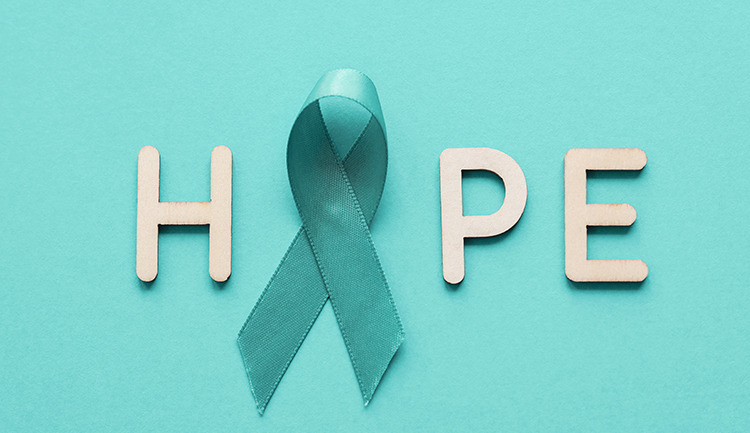Thanks to recent legislation, every survivor of sexual assault is entitled to certain specific rights. Any survivor who has:
- A forensic medical examination; or
- An interview by a law enforcement official or prosecutor.
Is eligible for certain rights under the bill of rights. You are entitled to these rights regardless of whether you:
- Agree to participate in the legal or criminal justice system;
- Agree to speak to a law enforcement officials or a prosecutor; or
- Consent to a forensic medical examination.
A survivor has the right to designate an attendant to provide support during:
- Any forensic medical examination; and
- Any interview by a law enforcement official or prosecutor.
*If a law enforcement official or prosecutor conducts an interview with a survivor who is a minor, the law enforcement official or prosecutor may exclude the attendant from the interview if the law enforcement officer or prosecutor has successfully completed specialized training in interviewing survivors who are minors that meets the standards of the National Children’s Alliance or its successor organization or another national organization that provides specialized training in interviewing survivors who are minors (forensic interviewers) and determines, in his or her good faith, that the presence of the attendant would be detrimental to the purpose of the interview.
A survivor retains the rights laid out in the above section even if the survivor has waived such rights during a previous examination or interview. Except with the consent of the survivor, the fact that the survivor waived the right to consult with a sexual assault victims’ advocate pursuant to (the above section) of this act is not admissible into evidence for any purpose.
If a survivor requests a consultation with a sexual assault victims’ advocate or an attendant to provide support to the survivor pursuant to (the above section) of this act, the medical provider shall summon the sexual assault victims’ advocate or attendant before the commencement of the forensic medical examination. If a sexual assault victims’ advocate or an attendant cannot be summoned in a timely manner, the medical provider shall inform the survivor of the ramifications of delaying the forensic medical examination.
A survivor must not be required to pay any expense related to a forensic medical examination.
After the forensic medical examination, the survivor has the right to use a shower apparatus at no cost, unless a facility which includes shower apparatus is not available.
Before a medical provider commences a forensic medical examination, the medical provider shall inform the survivor of his or her rights pursuant to the Sexual Assault Survivors’ Bill of Rights and other relevant law by presenting a document developed
by the Office of the Attorney General pursuant to section 27 of this act.
The person who presents to the survivor the document developed by the Office of the Attorney General pursuant to section 27 of this act shall sign a written acknowledgment
indicating that the person presented the document to the survivor. The written acknowledgment must be retained in the case file of the survivor.
If a survivor exercises his or her right to consult with a sexual assault victims’ advocate
during an interview pursuant to section 17 of this act, the law enforcement official or
Prosecutor conducting the interview, as applicable, shall summon the sexual assault
victims’ advocate before the commencement of the interview, unless no sexual assault
victims’ advocate can be summoned in a timely manner.
A survivor has the right to designate an attendant to provide support of his or her choosing during any interview by a law enforcement official or prosecutor pursuant to section 17 of this act, unless the law enforcement official or prosecutor determines, in his or her good faith, that the presence of the attendant would be detrimental to the purpose of the interview.
A survivor has the right to be interviewed by a law enforcement official of the gender of the choosing of the survivor. If no law enforcement official of that gender is available in a
reasonably timely manner, the survivor may be interviewed by an available law enforcement official of a different gender only upon the consent of the survivor.
A law enforcement official or prosecutor shall not discourage a survivor from receiving a forensic medical examination.
Before commencing an interview with a survivor, the law enforcement official or prosecutor conducting the interview shall inform the survivor of his or her rights pursuant to the Sexual Assault Survivors’ Bill of Rights and other relevant law.
Any information conveyed by the law enforcement official or prosecutor pursuant
to subsection 5 must be conveyed to the survivor by presenting a document developed by the Office of the Attorney General pursuant to section 27 of this act.
The person who presents to the survivor the document developed by the Office of the Attorney General pursuant to section 27 of this act shall sign a written acknowledgment
indicating that the person presented the document to the survivor. The written acknowledgment must be retained in the case file of the survivor.
A survivor retains the right to have counsel present during any forensic medical examination, interview, investigation or other interaction with any representative of the
legal or criminal justice system within this State pursuant to sections 16 to 20, inclusive, of this act.
The treatment of the survivor must not be affected or altered in any way as a result of the decision of the survivor to exercise his or her right to have counsel present during any forensic medical examination, interview, investigation or other interaction with the legal or criminal justice systems within this State.
A survivor has the right to prompt genetic marker analysis of a sexual assault forensic evidence kit pursuant to NRS 200.3786.
A sexual assault forensic evidence kit must be transported to a forensic laboratory and analyzed pursuant to NRS 200.3786, unless the survivor requests, in writing at any time prior to such analysis, for the forensic laboratory to defer analysis of the sexual
assault forensic evidence kit.
Biological evidence, including, without limitation, a sexual assault forensic evidence kit, secured in connection with the investigation or prosecution of a criminal case must be preserved and stored in accordance with the provisions of this subsection and NRS 176.0912. A sexual assault forensic evidence kit that is in the custody of an agency of criminal justice must be retained for:
- If the sexual assault forensic evidence kit is associated with an uncharged or unsolved sexual assault, at least 50 years.
- If the sexual assault forensic evidence kit is associated with an unreported or anonymous sexual assault, at least 20 years.
If a survivor has requested to defer analysis pursuant to subsection 2, the survivor may request that the forensic laboratory analyze the sexual assault forensic evidence kit at any later date before the expiration of the retention period pursuant to subsection 3.
A survivor has the right to the information regarding the timeline of the genetic marker analysis of sexual assault forensic evidence kits pursuant to NRS 200.3786.
Upon the request of a survivor, he or she has the right to be informed of:
1.The results of the genetic marker analysis of the sexual assault forensic evidence kit of the survivor;
2.Whether the analysis yielded a DNA profile; and
3.Whether the analysis yielded the DNA profile of the defendant or person accused or convicted of a crime against the survivor or a person already in CODIS.
The failure of a law enforcement agency to take possession of a sexual assault forensic evidence kit pursuant to the Sexual Assault Survivors’ Bill of Rights, or the failure of the law enforcement agency to submit such evidence for genetic marker analysis within the timeline prescribed pursuant to the Bill of
Rights, does not alter:
1.The authority of a law enforcement agency to take possession of that evidence or to submit that evidence to a forensic laboratory; and
2.The authority of the forensic laboratory to accept and analyze the evidence or to upload an eligible DNA profile obtained from such evidence to CODIS or the State DNA Database.
A defendant or person accused or convicted of a crime against a survivor does not have standing to seek to have his or her conviction or sentence set aside for any failure by a medical provider, law enforcement agency, forensic laboratory or other relevant entity to comply with the timing requirements of the Sexual Assault Survivors’ Bill of Rights.
Failure by a medical provider, law enforcement agency, forensic laboratory or other relevant entity to comply with the requirements of the Sexual Assault Survivors’ Bill of Rights does not constitute grounds for challenging the validity of a match or any information in the State DNA Database during any criminal or civil proceeding, and any evidence of such a match or any information in the State DNA Database must not be excluded by a court on such grounds.
Forensic evidence from a sexual assault may not be
used:
1. To prosecute a survivor for any:
(a)Misdemeanor; or
(b)Offense related to a controlled substance.
As a basis to search for further evidence of any unrelated misdemeanor or any offense related to a controlled substance that may have been committed by the survivor.
The Office of the Attorney General shall:
(a) Develop a document that explains the rights of a survivor pursuant to the Sexual Assault Survivors’ Bill of Rights and other relevant law; and
(b) Make the document available to medical providers, law enforcement officials
and prosecutors
The document must be in clear language that is comprehensible to a person proficient in English at the reading level of a fifth grader, accessible to persons with visual disabilities and available in all major languages of this State.
The document must include, without limitation:
(a)A clear statement that the survivor is not required to participate in the criminal justice system or to receive a forensic medical examination in order to retain the rights provided by the Sexual Assault Survivors’ Bill of Rights and other relevant law;
(b) Means of contacting, by telephone or Internet, nearby sexual assault victims’ advocates and centers for support for victims of sexual assault;
(c) Information about the availability of temporary and extended orders of protection pursuant to NRS 200.378;
(d) Instructions for requesting the results of the genetic marker analysis of the sexual assault forensic evidence kit of the survivor;
(e)Information concerning state and federal funds for compensation for medical and other costs associated with the sexual assault; and
(f)Information concerning any municipal, state or federal right to restitution for survivors in the event of a criminal trial.
Except as otherwise provided in this subsection, a law enforcement agency shall, upon written request by the survivor, furnish within 1 month, free, complete and unaltered
copies of all reports of the law enforcement agency concerning the sexual assault, regardless of whether the report has been closed by the law enforcement agency.
A law enforcement agency may, as appropriate, redact personal identifying information from any reports provided pursuant to this subsection. As used in this
section, “personal identifying information” has the meaning
ascribed to it in NRS 205.4617.
A prosecutor shall, upon written request of a survivor, provide certain information to the survivor pursuant to NRS 200.3784.
Each forensic laboratory shall submit the report concerning the status of sexual assault forensic evidence kits annually pursuant to NRS 200.3786.
In addition to any other right provided by law, a survivor has the right:
(a)In any civil or criminal case related to a sexual assault, to be reasonably protected from the defendant and persons acting on behalf of the defendant.
(b) To be free from intimidation, harassment and abuse.
(c) To be treated with fairness and respect for his or her privacy and dignity.
(d) To be heard through a victim impact statement at any proceeding involving any plea, sentencing, postconviction decision or any other proceeding where the rights of the survivor are at issue.
A survivor must not be required to submit to an examination by polygraph as a prerequisite to filing an accusatory pleading or participating in any part of the criminal justice system.
A court shall make reasonable efforts to provide the survivor and the family, friends and witnesses of the survivor with a secure waiting area or room that is separate from:
(a)The waiting area of the defendant and the family, friends, witnesses and attorneys of the defendant; and
(b) The office of the prosecutor, if applicable.




